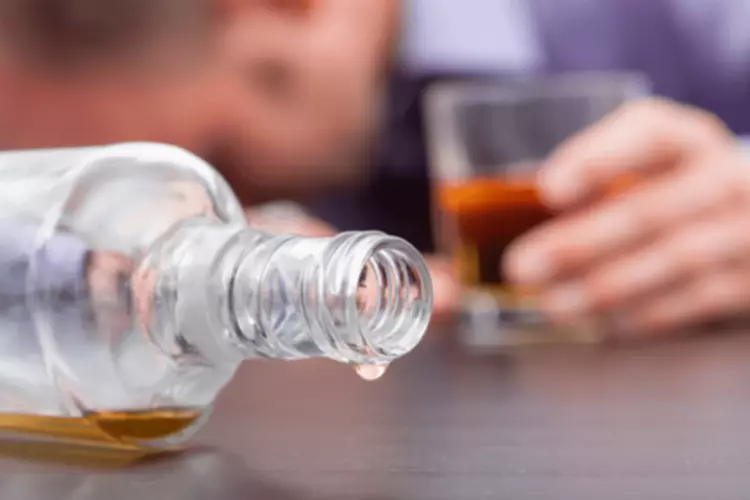Addiction: What It Is, Causes, Symptoms, Types & Treatment

Some of these illicit substances can also result in tolerance within one or two uses. Nevertheless, in the majority of cases, all of these steps are part of the chronic cycle of addiction. The word «contemplation» essentially means to consider or think about something deeply. In the context of the “stages of change” model of addiction and behavior change, contemplation refers to the stage at which the person engaging in the addictive behavior begins to think about changing, cutting down, moderating, or quitting the addictive behavior.
Expert Calls on Sector to Check In on Staff Mental Health This Professional Care Workers Week
Drug abuse refers to the harmful or hazardous use of psychoactive substances, including legal and illegal drugs. Drug abuse is the second stage of the addiction cycle, where individuals engage in hazardous consumption of substances, leading to adverse effects on both mental and physical well-being, cycle of addiction social relationships, or overall quality of life. The World Health Organization (WHO) defines substance abuse as using a substance in a harmful way. The breadth and depth of the studies in this topic illustrate the complex actions of alcohol and drugs of abuse on various neurobiological systems.
- A treatment center will attempt to verify your health insurance benefits and/or necessary authorizations on your behalf.
- In the contemplation stage, people realize that their habits or addictions may be creating an air of difficulty for them and also their family and loved ones.
- The stages of the addiction cycle are based on research from the Substance Abuse and Mental Health Services Administration (SAMSHA), which identified the areas of the brain where these stages occur.
- Ultimately, Lembke says, this is a universal problem – not one limited to those of us struggling with the disease of addiction – that has come with living in modern life.
- The brain mediates our motivation to repeat behaviors that lead to pleasurable, rewarding states or reduce uncomfortable, distressing physical or emotional states.
- As with other chronic health conditions, treatment should be ongoing and should be adjusted based on how the patient responds.
Depression Rates Rise in Communities Affected by Mass Shootings

Currently, the cost of addiction to illicit drugs in the United States is more than 600 billion dollars a year (National Institute on Drug Abuse, 2015), with profound social and economic impacts. Despite the prevalence and long history of addiction, it is still not clear what neurophysiological processes are involved in the development and progression of addictive disorders. Although young people are particularly vulnerable to the adverse effects of substance use, not all adolescents who experiment with alcohol or drugs go on to develop a substance use disorder. Studies that follow groups of adolescents over time to learn about the developing human brain should be conducted. These studies should investigate how pre-existing neurobiological factors contribute to substance use, misuse, and addiction, and how adolescent substance use affects brain function and behavior.
Addiction Stage 3: Tolerance and Dependence
With motivation and experienced, certified help, these individuals can learn to interrupt the addiction cycle and move forward into the sustained abstinence that heralds recovery and results in a more positive future. As a result, the person using the substance may increase the dosage or frequency of use to try to recapture the original result. Then, over time, tolerance to this new dosage occurs, and the person increases again, creating a progression into heavy substance abuse. Some people are able to adjust to controlled drinking, drug use, or addictive behaviors without becoming addicted. People in this stage usually experience their addictive behavior as a positive or pleasant experience.
Preparation Stage

Informed by her personal journey to recovery and support of loved ones in sobriety, Jessica’s empathetic and authentic approach resonates deeply with the Addiction Help community. In addition to managing a successful family medical practice, Dr. Hoffman is board certified in addiction medicine by the American Osteopathic Academy of Addiction Medicine (AOAAM). Dr. Hoffman is the Co-Founder and Chief Medical Officer of AddictionHelp.com and ensures the website’s medical content and messaging quality.

The vigilance of healthcare providers to screen for addiction has been historically poor despite the preventable consequences. Much of this blindspot is related to traditionally held negative attitudes by healthcare providers toward those with addictive disorders. Addictive disorders have a 40% to 70% heritable genetic component.[24] Numerous genes contribute to the risk of addiction, each with a unique effect size, https://ecosoberhouse.com/ and their interplay results in the overall genetic predisposition or protection from addictive disorders. These genes are involved with the brain regions described in the addiction cycle or with the metabolism of a specific addictive substance. Addiction and mental health often go hand in hand, creating a complex web of challenges. Substance use can exacerbate existing mental health conditions or trigger new ones.
- Drug abuse refers to the misuse of substances in a way that is harmful or risky, often leading to negative consequences in various aspects of life, such as health, relationships, and work.
- As the opioid epidemic continues to challenge public health, MAT stands as a proven, evidence-based strategy that can save lives and support individuals on their path to recovery.
- Perhaps one of the most insidious effects of addiction is the way it derails life plans and stunts personal growth.
- Ideally, friends and family members show invested support and encouragement during the action process model of addiction.

- But recovering from substance use disorders and behavioral addictions isn’t easy.
- This cycle can be arrested at any point after the addict or alcoholic makes a decision or is forced to get help.
- A vicious cycle ensues; taking the substance to lessen withdrawal will lead to worse withdrawal symptoms in the next period of abstinence.
